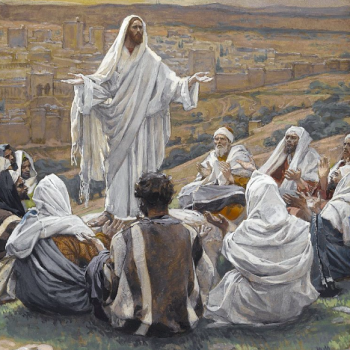Christians have usually referred to this awakening as conversion. Although this is certainly an appropriate term, it casts the change in overly narrow religious terms. It implies that what is involved is essentially a change of religions, or the adoption of the beliefs and practices of a particular religion. Saul's change involved much more than this. The biblical account of the story points us to the broader implications of the transformation by its focus on seeing. At the core of the experience was his movement from blindness to sight. But his blindness was far deeper than the temporary three-day absence of sight. What he had been blind to was the reality of and his relationship to Christ. When the scales fell off his eyes, what he saw was not just his surroundings but also the truth behind the words of those he had sought to silence—that Jesus was indeed the Light of the world.
Saul's personal encounter with the Light was the core of his awakening, and his subsequent enlightenment was the central dynamic of the new man that he became. New life began to surge through parts of his self that had shriveled under the weight of hate and murderous zeal. Love began to seep into his soul. He didn't simply switch causes and retain the same self: his mind and his heart were transformed, his spirit realigned, and his life reorganized.
Awakenings are not always this dramatic, nor do they always involve a recognizable encounter with the Divine. But when we offer our consent to the awakening that either external or internal circumstances may provide, those circumstances can be a gateway to a rebirth—not just in a theological sense but also in a psychological and spiritual one. They can lead to dramatic new life that is grounded in profound changes in the self.
Losing Our Mind and Coming to Our Senses
We have recognized that Paul's awakening was more a matter of seeing than simply a change of beliefs. But it is not just seeing that is involved in awakening. Awakening can come through any of the senses.
Gestalt therapy is built entirely on this power of awakening. Fritz Perls, the founder of this approach to psychotherapy, calls it "awareness" and describes the way in which awareness draws us back into our bodies, in touch with our senses, and mobilizes us for action. He argues that in order to be truly alive, we must be aware of our impulses and yearnings, of the here and now, of our sensory experience, and of what he calls our unfinished business. Then and only then is real change possible.
Perls describes three levels of awareness: awareness of the self, awareness of the world, and awareness of the intervening fantasy between the self and the world. This intermediate world contains our prejudices and prejudgments through which we view our experiences of everything beyond us. Here we see the world through the labels we give things and the categories into which we jam them. But experiencing the world through categorization, bias, and prejudgment is not experiencing things as they actually are. It is experiencing our thoughts about the world rather than directly experiencing the world.
The distance this provides from the raw reality of things as they truly are keeps us comfortable but out of touch with reality and unaware.
Anthony De Mello, the twentieth-century Christian mystic who has done so much to bring together the spiritual wisdom of East and West, describes this lack of awareness by means of a pithy aphorism. "Life," he suggests, "is like heady wine. Everyone reads the label on the bottle. Hardly anyone tastes the wine."2 Confusing the reading of labels with tasting and drinking the wine is responding to the world through this intermediate zone of thoughts, judgments, biases, and preconceptions. It is mistaking this comfortable place within our self for an authentic encounter with external reality. It is failing to recognize the difference between fantasy and raw experience.
Becoming aware of this intermediate zone empties it by drawing us into the present moment. Suddenly the world is present to us and we are present to it. Suddenly we have moved from our mind to our senses, and through them, we are in more immediate and direct contact with what truly is. This is what Eckhart Tolle calls the power of the now.3 An embrace of the present moment can do something that nothing else can do: it can bring us into the only place where we truly are, the only place we can truly be alive, and the only place where we can truly meet God.
Sometimes, however, we choose to withdraw our attention from the present moment because it is unpleasant or threatening. We have two major options for this form of escape: we can escape to the past through nostalgic remembering and compulsive review, or to the future through anxious anticipation and obsessive rehearsals. Both involve an escape into the safety of our minds. They are, therefore, ways of staying asleep, or if we have had a momentary awakening, of quickly returning to sleep.




